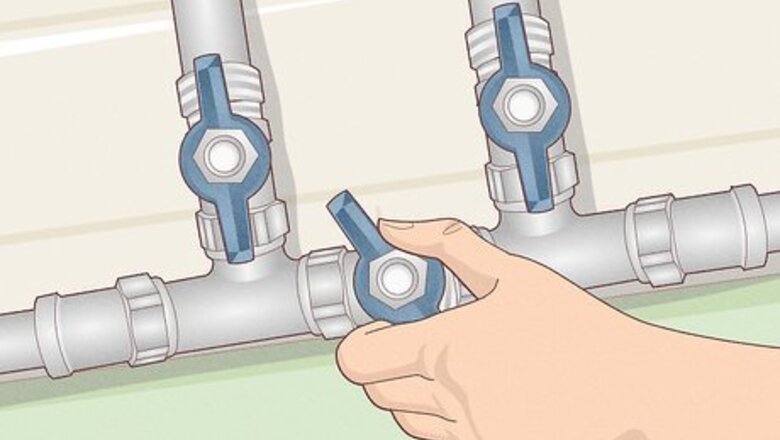
views
- Install a bypass valve or treat your water with potassium to water your plants with unsoftened water.
- Purify softened water with a reverse osmosis or water distillation system.
- Leach your garden with purified water to remove salt from soil.
Removing Salt From Water
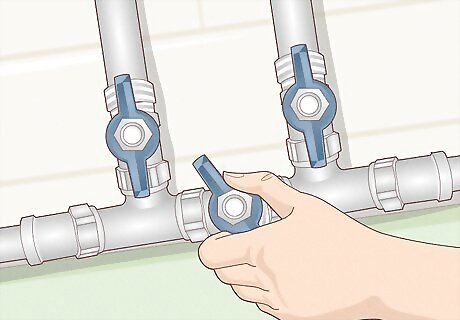
Install a bypass valve to get untreated water. Most homes have a soft water treatment system that receives untreated, and therefore unsalted, water from your main waterline. To get untreated water, install a bypass valve or spigot onto your waterline. You can then directly water your plants without worry of damaging them with soft water.
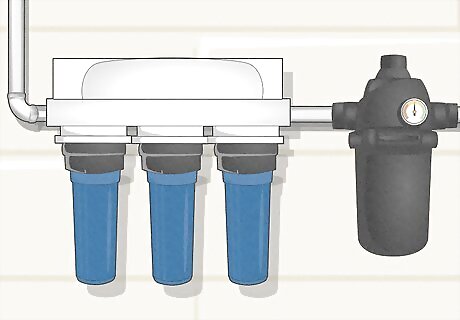
Purify water with a reverse osmosis water system. Reverse osmosis is a filtering technique that removes sodium and nearly all other minerals from water. You can install your own reverse osmosis filtration system, which is typically placed under your sink, so you can receive untreated water directly from your tap. Reverse osmosis removes all minerals from water, meaning that your plants won’t receive important minerals that they need like potassium and nitrogen. Be sure to add these minerals back into your plants’ diet with nutrient rich soils and fertilizers.
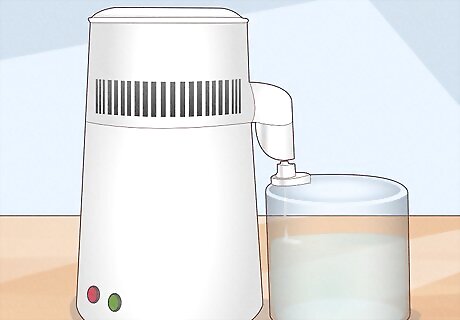
Remove salt with a water distillation device. Distillation is the process of purifying water by heating it up and turning it into steam. Only water can be evaporated, so the sodium in soft water is left behind in the distillation chamber as the steam cools back down into liquid water. You can by a countertop distillation system, or distill your own water with a regular cooking pot and heat safe bowl. Most distillation systems purify 1 gallon (3 liters) of water at a time, which takes about 4 to 6 hours.
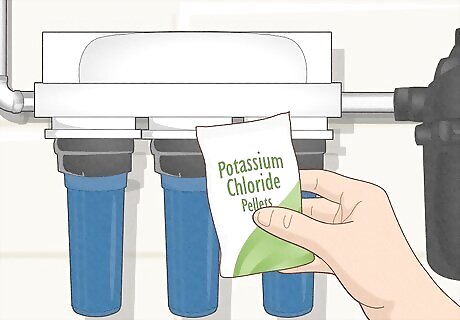
Treat your soft water system with potassium. Potassium can be used instead of sodium to treat your water, which is extremely beneficial to plants. Most stores sell potassium chloride pellets which you can add directly to your water softening system. Make sure to consult your soft water treatment system’s manual for instructions on how to make the switch. Some systems are built in a way that you cannot switch from sodium to potassium.
Easy Alternatives
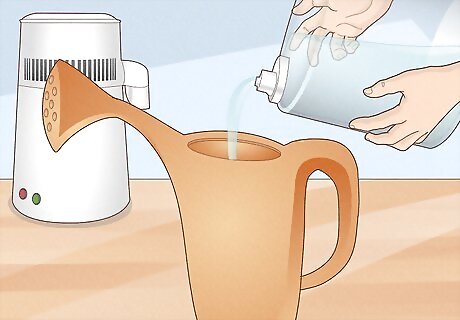
Dilute your water with distilled water. Distilled water is almost entirely free of the natural minerals and chemicals you find in water, so by mixing it with soft water, you reduce its sodium concentration. Simply add equal parts distilled water and softened tap water to your favorite watering can to dilute your water.
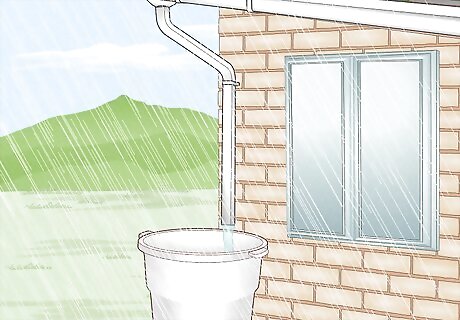
Collect rainwater. As rainwater is completely natural, it does not contain the higher concentration of sodium and other chemicals found in soft water. There are several easy ways to collect rainwater, such as building a collection system with barrels placed strategically under your roof’s gutters. Do not water any vegetables or fruits with rainwater unless you purify it first. Rainwater is not potable, meaning it is contaminated with germs and bacteria that make it unsafe for consumption. You can also choose to dilute your soft water with rainwater.
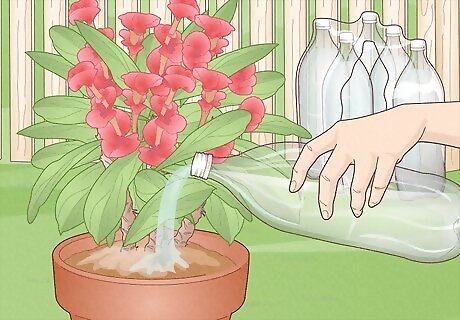
Use bottled water. While this is not the most environmental or economical choice, most bottled water contains less sodium than you find in typical soft water. This might be a quick solution if you’re in a pinch but need to water your plants.
Removing Salt From Soil
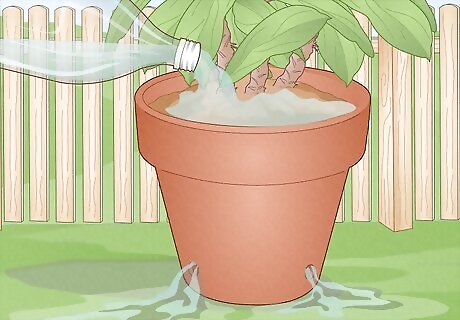
Leach your soil with purified water to remove salt buildup. Constant watering with soft water causes sodium to build up in your soil, leading to sick and damaged plants. It is simple to leach, or remove salt from your soil, by pouring purified water into your soil and letting it drain. You can also set up a sprinkler system with untreated water to leach your soil over time. In general, about 6 inches (15 cm) of water will reduce 50% of the salt in your soil. Before you start leaching your lawn, test your soil salinity with an electrical conductivity (EC) meter. This will help you identify how salty your soil is and how much purified water you need to properly leach it.
Is soft water safe for plants?
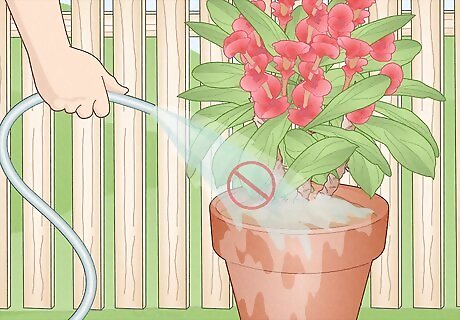
Soft water contains high levels of sodium, which is toxic to plants. Sodium, which is a type of salt, prevents plants from taking up enough water. Even if you’re watering your plants frequently with soft water, your plants might still dry up because their roots can’t properly absorb the salt water. Soft, salty water also reduces plant growth, damaging their roots and leaves.
Watering Your Plants
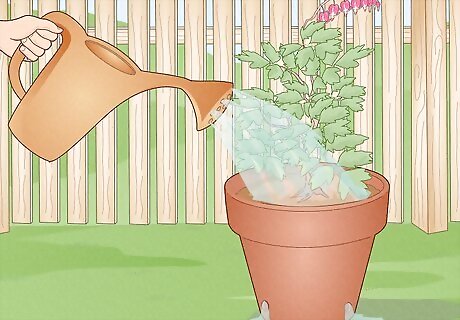
A thorough watering helps prevent salt buildup in your potted plants. When watering your plants, soak them with enough water that it runs out the bottom of the pot. Always plant your plants in pots with good drainage holes so that your plant does not sit in the water.
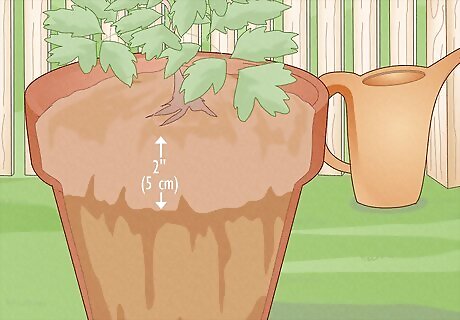
Water your plants when the top 2 inches (5 cm) of soil is dry. Along with using soft water, overwatering can damage your plants roots and turn your leaves yellow. Check your soil regularly to see if it's dry instead of watering it on a set schedule.
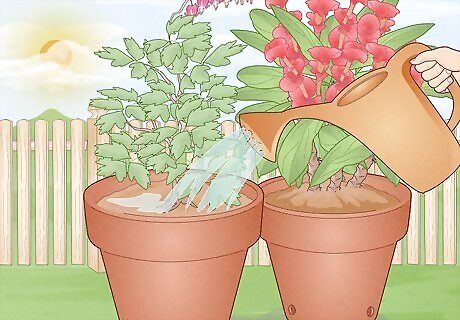
Give your plants and garden a soak in the morning. Morning watering helps your plants absorb water better, because less water is lost from evaporation due to the sun. It can also help prevent them from developing diseases because they have time to dry out over the course of the day.


















Comments
0 comment